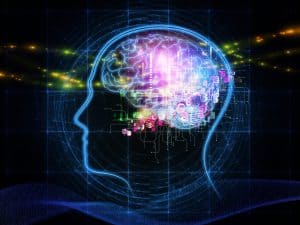
Deployed for AI, e-prop would require only 20 watts, approximately one-millionth the energy a supercomputer uses.
Artificial intelligence models continue to grow in sophistication and complexity, adding to the need for more data, computation, and energy.
To help combat increasing energy costs, researchers at TU Graz’s Institute of Theoretical Computer Science have developed a new algorithm, called e-propagation (e-prop for short).
SEE ALSO: Researchers Develop Algorithm to Detect Crude Oil on Water
E-prop mimics how neurons send electrical impulses to other neurons in our brain, which massively reduces the amount of energy human brains use, in comparison to machine learning. Deployed for AI, e-prop would require only 20 watts, approximately one-millionth the energy a supercomputer uses.
“E-prop relies on two types of signals that are abundantly available in the brain, but whose precise role for learning have not yet been understood: eligibility traces and learning signals,” said Wolfgang Maass and Robert Legenstein, authors of the e-prop paper.
With this enormous reduction in energy usage, AI models could theoretically be trained and tested on computers far less exclusive than the current world-class supercomputers.
Another differential with e-prop works completely online, rather than storing data centrally, which improves efficiency by not requiring separate memory for constant data transfer.
The theory of e-prop makes a concrete experimentally testable prediction: that the time constant of the eligibility trace for a synapse is correlated with the time constant for the history-dependence of the firing activity of the postsynaptic neuron,” said the research team.
“It also suggests that the experimentally found diverse time constants of the firing activity of populations of neurons in different brain areas are correlated with their capability to handle corresponding ranges of delays in temporal credit assignment for learning.”



























